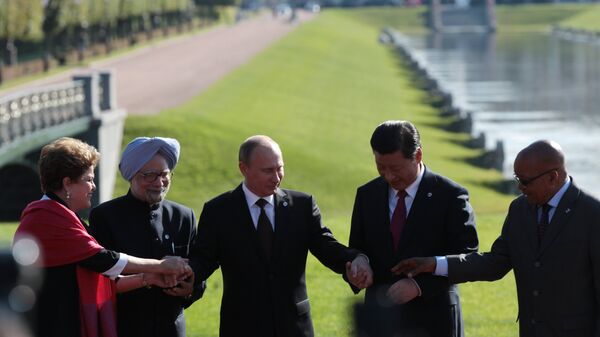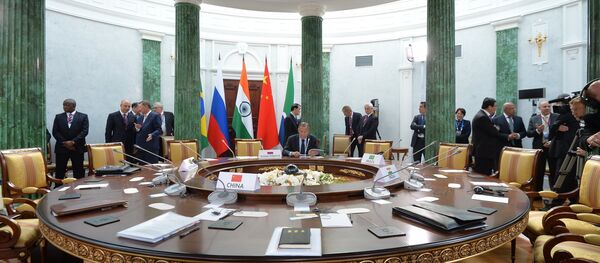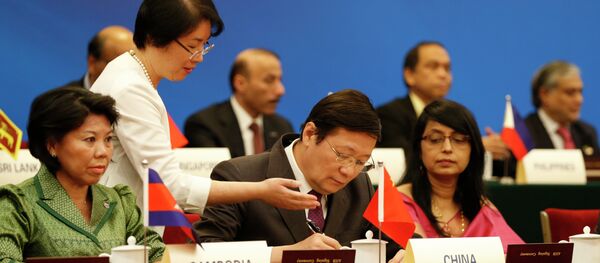According to the agreement, China is expected to contribute the largest share to the pool at $41 billion, with Russia, India and Brazil chipping in $18 billion apiece, followed by South Africa at $5 billion.
Reinaldo Goncalves, economics professor at Rio de Janeiro Federal University, believes the NDB and the currency pool gives its largest contributor an effective means of exerting pressure on other members of the monetary fund.
Chen Fenying, head of the Institute of World Economic Studies at the China Institutes of Contemporary International Relations, says few mechanisms allot contributing members similar leverage in the international arena.
"It is hard to overestimate the value of the contingent currency pool as an investment platform… Despite the fact that the IMF has a comparable mechanism, it lacks similar liquidity," Chen told Sputnik.
The BRICS' New Development Bank is expected to become one of the largest multilateral development institutions in the world with an independent lending policy from its headquarters in Shanghai.
Russia assumed this year's chairmanship of the informal intergovernmental association established in 2010, which makes up two-fifths of the world's population and one-fifth of its GDP.



